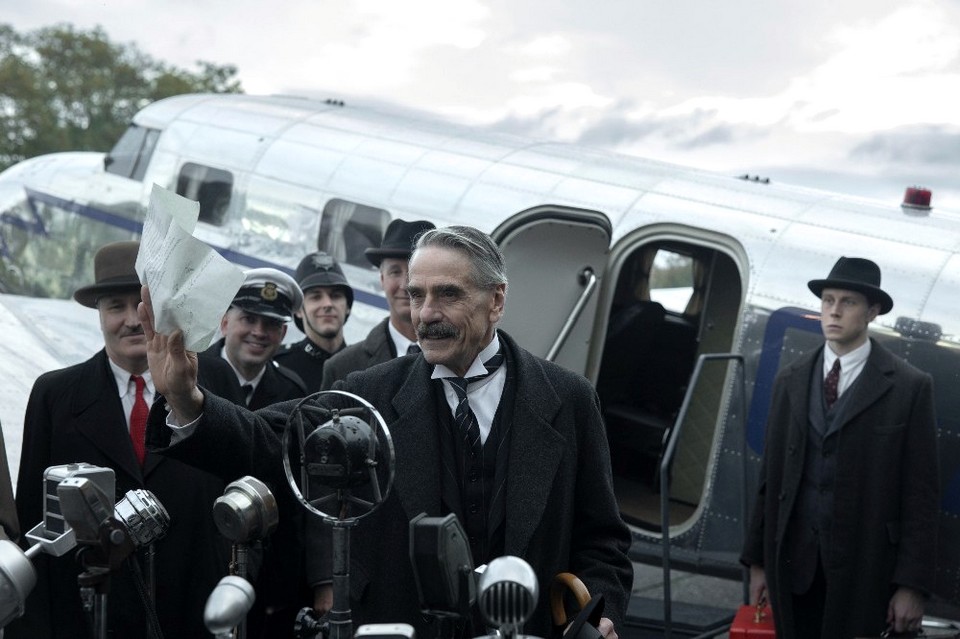
Based on the novel by Robert Harris, Munich – The Edge of War is being released January 21 on Netflix, the world’s largest streaming service. It centers on the famous or infamous set of conferences between Germany, Italy, Britain and France which ceded a part of Czechoslovakia to Hitler in 1938 in return for a vague promise that he would stop any more gobbling up of central Europe. It didn’t work and, in the spring of 1939, Nazi Stormtroopers invaded the rest of the country and set up the Hitler regime in Prague. Within six months, the second world war had begun with the invasion of Poland.
The movie concentrates on two diplomats, one British and one German, who find themselves at Munich in the midst of much political intrigue, double-dealing and downright lying. But the star of the movie is Jeremy Irons playing British prime minister Neville Chamberlain who returns to London waving a piece of paper signed by Hitler which promised “peace in our time”. Chamberlain in the past has always been categorized as a fool who was easily outmaneuvered by the Germans, as for example in the movie Remains of the Day. There he talked about the Czechs as being far away people of whom we know nothing. The implication was he couldn’t care less.
But in Munich – The Edge of War Chamberlain is presented in a much more sympathetic light. He knows all about the horrors of the previous world war and is determined, if he can, to avoid a second one. The policy is called “appeasement” even though Chamberlain was less indulgent to the Fuhrer than his predecessor as prime minister, Stanley Baldwin, had been. Nonetheless, Chamberlain falls into the trap of believing that Hitler is a man you can do business with. In other words, the movie sticks to the traditional argument that Hitler won hands down at Munich.
Not everyone would agree. By buying time at Munich, Chamberlain allowed Britain to prepare for war and, in particular, to overhaul and to strengthen the Royal Air Force. Hitler himself, according to his foreign secretary Ribbentrop, did not think the Munich settlement had been a success from his point of view: all the British had done was to cede the frontier districts of the Sudetenland which were largely German-speaking in any case. These debatable issues are not pursued in the movie. So it’s a great drama, but not the whole story.
 |
 |
 |





